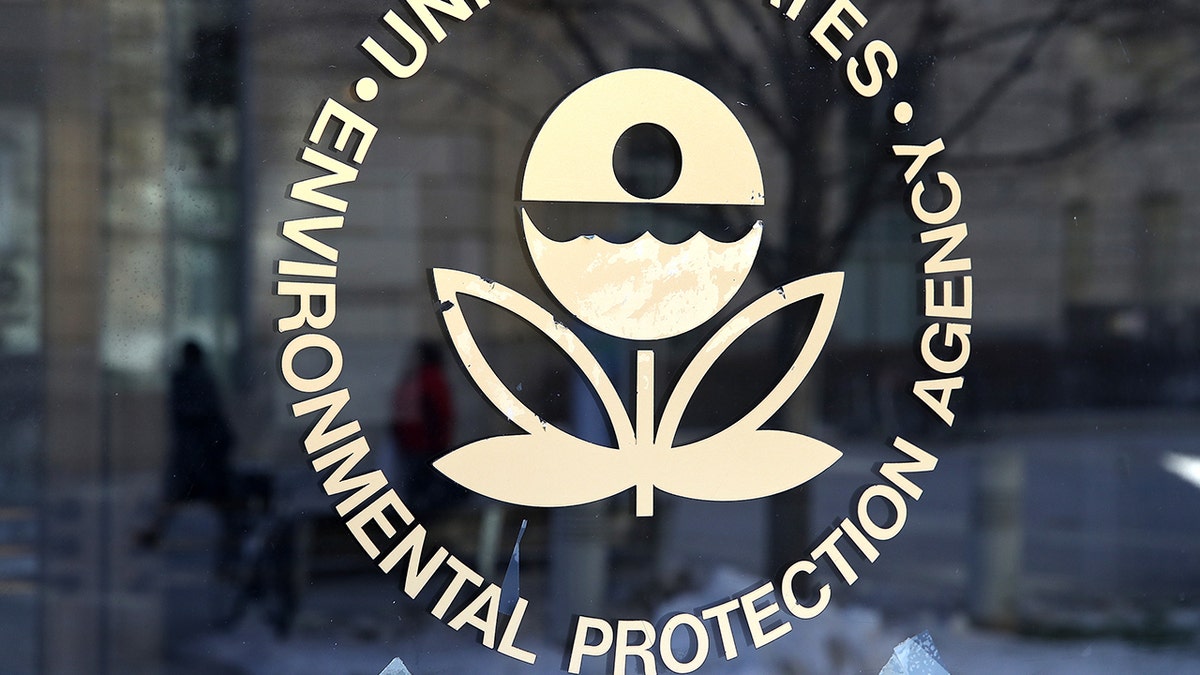Jason Chaffetz: Biden's EV mandate is 'untenable'
'The Big Weekend Show' panelists discuss reports the Biden administration plans to slow down its push for electric vehicles.
Surprise! Joe Biden is running away from his push for electric vehicles – arguably his most important climate program -- as fast as his 81-year-old legs can carry him. Common sense and sinking polls in Michigan have broken through Biden’s climate panic; it’s about time.
You can also thank BYD, China’s leading manufacturer of electric vehicles, for Biden’s backpedaling. More on that shortly.
The New York Times, favored errand boy for the Biden White House, delivered the head-spinning turnaround on Sunday of a holiday weekend, under the radar. In essence, Biden has extended the timetable for lowering tailpipe emissions several years into the future, a backtracking sure to infuriate the climate lobby and especially climate-obsessed young voters. The president’s standing with that latter cohort is already shrinking; a recent poll showed Donald Trump running ahead of Biden with registered voters under the age of 35.
The Times reported that the president plans to "relax" the EPA’s proposed emissions limits, which aimed to eventually eliminate gas-powered cars. White House climate czar Ali Zaidi claims the goal of cutting U.S. emissions in half by 2030 will still be met. Not likely.
BIDEN ADMINISTRATION CONSIDERING EV SWITCH DELAY DUE TO WEAK DEMAND
Proposed last year, the EPA projected its new rules would mean that "EVs could account for 67% of new light-duty vehicle sales" by midyear 2032."
At the time, the EPA celebrated the tripling of EV sales during Biden’s presidency and the building of 130,000 charging stations. That sounds impressive except that electrics represented less than 8% of all new car sales last year and the U.S. will need an estimated two million charging ports by 2030.

The EPA celebrated the tripling of EV sales during Biden's presidency in 2022. (Justin Sullivan/Getty Images)
The shortage of charging stations and inconvenience of the whole charging process have slowed the growth of EVs; so has the high price. Last month, according to Cox Automotive, "the average price paid for a new EV was $50,789…" Even with the generous tax credits handed out by Biden’s Inflation Reduction Act, electrics are still more expensive than old-fashioned gas guzzlers, which on average retail for about $34,000.
Consumers have balked, leaving dealers’ lots overflowing with unsold cars. Reports of cold weather hindering charging operations and battery lives being drained by sub-freezing temperatures have further squelched enthusiasm. Having spent billions to comply with Biden’s decree, Detroit automakers are losing buckets of money on the unpopular cars. Ford, for instance, lost $36,000 on each EV it produced late last year.
FORD'S PROFITS GETTING EATEN UP BY EVS
Those issues have not swayed a White House consumed by climate alarmism. What has gotten their attention is the political risk of losing Michigan, a critical swing state. A recent Fox News survey shows Trump leading Biden 47 percent to 45 percent in the Wolverine state. The Real Clear Politics average of Michigan polls shows Trump ahead by 5 points.
In 2016, Trump squeaked by Hillary Clinton, winning the state by about 10,000 votes. In 2020, Biden won Michigan with a margin of 154,000 votes. It is the ultimate toss-up state, good for 15 Electoral College votes and considered critical to both candidates. The latest Fox poll shows 6% of 2020 Biden voters have switched their preference to Trump; that’s enough to change the outcome.
Biden faces two hurdles in Michigan. The state has a large Arab-American population, estimated to account for roughly 5% of voters, which is angry about Biden’s support for Israel in its battle against Hamas. Arab-Americans are threatening to vote "uncommitted" in the Democrat primary on February 27 to signal Biden that he has not earned their support.
TESLA CUTS MODEL Y PRICES IN US TO BOOST SALES AS COMPETITION FROM CHINA HEATS UP
Biden’s other problem is wavering backing from autoworkers in Michigan, who have historically supported Democrats. As many as one third of that group turned out for Trump in 2016 but then defected to Joe Biden four years later. The UAW leadership has officially endorsed President Biden for the upcoming election – after winning concessions on the EPA tailpipe rule -- but Trump is again wooing the rank-and-file, apparently with some success.
Autoworkers are concerned that the switch to electric vehicles will cost them jobs, since it takes 40% more labor hours to produce a gasoline-powered car. Biden’s EV mandate was an underlying cause of the contentious UAW strike last year. Workers wanted higher pay, but they also wanted guarantees that the push to scuttle gas-powered cars would not put them out of work.
CLICK HERE FOR MORE FOX NEWS OPINION
That remains a hot topic and explains in part why the White House has rewritten the tailpipe emissions timetable. Not only does assembling an EV require fewer hours of labor, but the high-value batteries and some cars are largely being produced in plants located in right-to-work states. Some Detroit automakers had to guarantee unionization of those plants to settle the strike.
But our autoworkers and makers may soon face a much graver threat, one that President Biden has ignored. BYD, a Chinese company that last year topped Tesla as the global leader in EVs, is reportedly looking to set up shop in Mexico. Under NAFTA, our trade agreement with Mexico and Canada, the U.S. would be required to allow imports of BYD electrics free of tariffs.
Chinese companies like BYD dominate the global EV industry, with about a 60% share of the market. Their cheap but attractive EVs have invaded Europe, taking a large share of the electric market almost overnight and causing alarm amongst rivals like BMW and Mercedes. Though Chinese imports would not qualify for tax credits like those available for cars made in the U.S., their significant cost advantage and lower prices would make them highly competitive.
CLICK HERE TO GET THE FOX NEWS APP
But, especially with Chinese makers looking to take over the industry, the EV push is a bust, threatening Detroit automakers and UAW members. It is also dangerous for the U.S. Bloomberg, an organization as fixated on climate change as the White House, recently warned that "at least" one million U.S. households are at risk of electric power surges as our electric grid "is struggling to maintain an even flow of electricity…"
Why? Because our grid is not ready for the surge in EVs. Neither is the U.S.













































